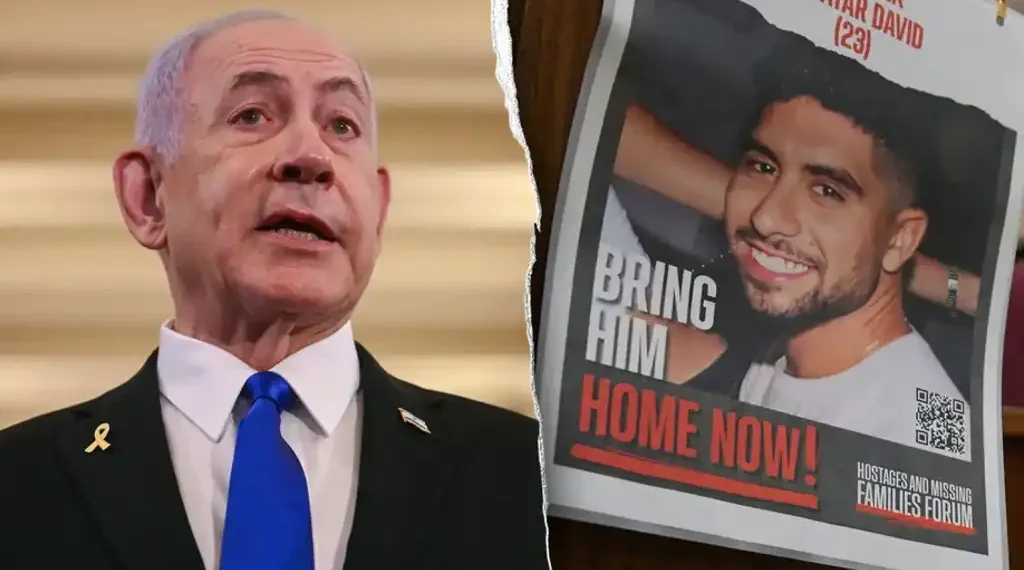Israel May Re-Occupy Gaza as Hostage Crisis Deepens
Published: August 5, 2025, 16:00 U.S. Eastern Time
Israel’s government is reportedly preparing to approve a plan to re-occupy parts of the Gaza Strip as the war against Hamas stretches into its second year. The move signals a significant shift in military strategy following the collapse of ceasefire talks and growing internal pressure over the fate of hostages.
Security Cabinet to Debate Full Gaza Re-Occupation
According to Israeli media, the country’s Security Cabinet will convene Tuesday to consider a proposal that would grant the Israel Defense Forces (IDF) authority to take full control of Gaza, including areas it has avoided entering until now.
The proposed shift comes amid mounting frustration within Israel’s leadership over what some officials see as a lack of progress in securing the release of hostages still held by Hamas.
Amit Segal, a well-known political correspondent for Channel 12 News, reported that a senior source from Prime Minister Benjamin Netanyahu’s office indicated a firm decision had already been made.
“We are going to occupy the Gaza Strip,” Segal quoted the unnamed official as saying, adding that negotiations have failed and time is running out for the hostages.
Stalemate in Ceasefire Talks Triggers Strategic Shift
The reports come just days after another round of internationally mediated ceasefire negotiations between Israel and Hamas appeared to collapse.
Despite efforts by U.S. Middle East envoy Steve Witkoff, who visited Israel over the weekend and claimed to be working on a diplomatic resolution, no breakthroughs have been achieved.
Instead, the situation has intensified. Hamas recently released propaganda videos featuring visibly malnourished hostages, including one who was allegedly forced to dig his own grave. These videos have caused widespread public outrage in Israel.
Humanitarian Pressure Mounts on Israel
International scrutiny of Israel’s military operations and humanitarian policies has also increased.
Global human rights organizations and several United Nations agencies have accused Israel of contributing to a humanitarian crisis in Gaza, including allegations of famine. Images of severely malnourished children circulating on social media have further fueled the criticism—though in several cases, those images were later linked to pre-existing medical conditions rather than war-related deprivation.
Still, the growing chorus of concern is placing Israel’s leadership under immense pressure to shift strategies.
Internal Political Divisions Over Gaza Policy
Domestically, Netanyahu’s cabinet is divided. While some officials support continued negotiations and a more measured military response, others are demanding a full-scale re-occupation of Gaza.
Finance Minister Bezalel Smotrich and National Security Minister Itamar Ben-Gvir have publicly called for the reconstruction of Jewish settlements in Gaza—settlements that were dismantled during Israel’s 2005 withdrawal.
These right-wing ministers argue that reasserting Israeli control over Gaza is the only viable path to eliminating Hamas and rescuing the remaining hostages, whose estimated number now stands at around 50, both dead and alive.
Military Leaders Caution Against Full Occupation
Despite political pressure, Israel’s military leadership reportedly remains cautious about fully re-occupying Gaza.
According to various Israeli outlets, military officials are expected to present alternative strategies at the Tuesday cabinet meeting. These could include expanded but limited operations rather than long-term occupation.
Military analysts have long warned that holding territory in Gaza could result in a prolonged and costly conflict, with no guarantee of achieving the desired outcomes in terms of hostages or regional security.
Historical Context and Future Implications
Israel withdrew from Gaza in 2005 under then-Prime Minister Ariel Sharon, dismantling all military bases and settlements in the territory. Since then, Hamas has gained control of the region, leading to repeated rounds of conflict with Israel.
A renewed occupation would mark a significant reversal of that policy and could have wide-ranging implications—not only for the Israeli-Palestinian conflict, but also for regional stability and Israel’s relationships with allies like the United States.
If approved, this move would represent one of Israel’s most aggressive responses in decades, potentially escalating the conflict further and complicating future diplomatic solutions.
This article was rewritten by JournosNews.com based on verified reporting from trusted sources. The content has been independently reviewed, fact-checked, and edited for accuracy, neutrality, tone, and global readability in accordance with Google News and AdSense standards.
All opinions, quotes, or statements from contributors, experts, or sourced organizations do not necessarily reflect the views of JournosNews.com. JournosNews.com maintains full editorial independence from any external funders, sponsors, or organizations.
Stay informed with JournosNews.com — your trusted source for verified global reporting and in-depth analysis. Follow us on Google News, BlueSky, and X for real-time updates.














